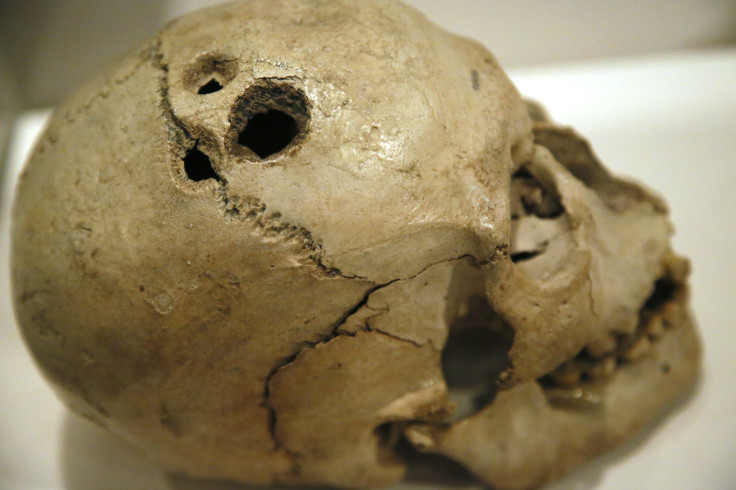‘Evil Embryonic Twin’ Found In Woman’s Brain Complete With Teeth, Hair & Bone

Medical doctors in Los Angeles found inside a woman’s brain teratoma complete with hair, teeth and bone and initially labelled to be the woman’s “evil embryonic twin.” But experts dismissed the embryonic theory, explaining the tumour was neither an embryo nor her twin.
Indian national Yamini Karanam, a student of doctor philosophy, had brain surgery last September after complaining she had been having comprehension issues on conversations and on what she had been reading. She said she could not understand what was happening if people will start talking, and her brain would not register what she had just read.
During preliminary tests, doctors were not certain on what caused her health problems. Her situation was worsened as doctors shared contradicting views.
She had to go through a “keyhole” surgery so the experts can probe deep into her brain. Keyhole surgery was designed as a minimal invasion into the depth of one’s brain to pull out tumour.
Doctors from NBC Southern California discovered teratoma, a kind of tumour having three different cell types common to a human embryo at early stage. After learning what had been extracted from her brain, Karanam managed to crack a joke, saying “it was her evil twin sister who has been torturing” her in the last 26 years.
Germ Cells
Dr. Cathy Burnweit from Nicklaus Children’s Hospital in Miami, Florida said Karanam’s teratoma occurred “when a person’s own germ cell multiplies abnormally and differentiates into various different, normal tissues in an abnormal place.” Teratomatas spring from germ cells, which are capable of developing into any cell in the body including hair, bone and cartilage, said Dr. Amir Dehdashti from North Shore University Hospital in New York.
In addition, Dr. Adrienne Bonham from University of Rochester Medical Center said a teratomata can also have muscle tissue, lung or gastrointestinal tract tissue. They are equally common in ovaries, tailbone and, on the part of men, on their intimate body areas.
But although a teratoma has components similar to what normal bodies have, it is no sense an embryo or a twin, according to Burnweit. He further said teratomatas rarely grow in brains and the case of Karanam was not isolated. Dehdashti assured teratomatas are hardly malignant. They do not metastasize.
Watch Karanam's interview below.
Credits: YouTube/ Shirley Cooksey
For comments or feedback on the article, contact the writer at kizmet@ymail.com. You may also join or start a discussion below.





















